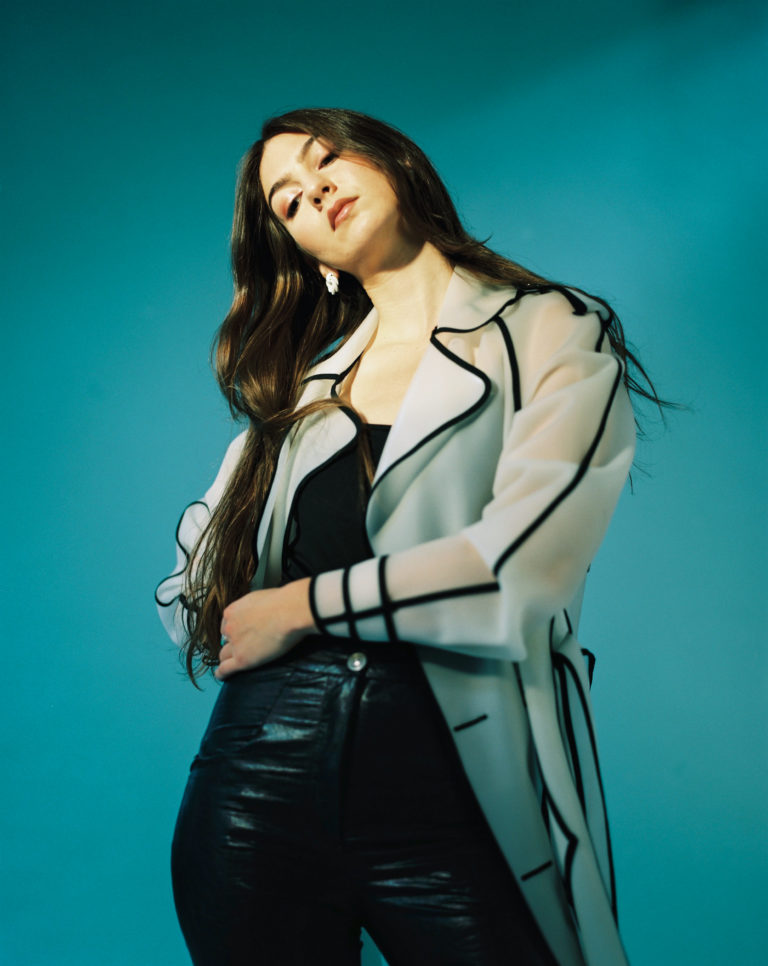NAAR: My first question is about your album Front Row Seat To Earth. On your first album, you had several effects, kind of a more experimental sound. With the second album, you explored more classic folk songs. This album seems to be a well-found balance between, as you say, a porridge too cold and a porridge too hot. I believe you already have the material for at least 2 other albums. Where do you want to lead your music to now?
Weyes Blood: Oh, that’s my secret! I can’t say. But I would definitely like to use my secret arsenal of experimental stuff that I have kind of been hiding and not using as much in previous songs. I’m getting better at arranging, in kind of making more powerful melodies, that are relatable, while also incorporating some experimental elements.
NAAR: In the song Generation Why, you sing: “It’s not the past that scares me, Now what a great future this is gonna be”. As if the future scares you. The future ahead is great but it is scary because young generations have a pressure to succeed. It’s our fault if we fail our lives, if we fail in achieving something.
WB: What’s the question exactly? Do you ask what I mean by that?
NAAR: Yes.
WB: I think it’s more about… The future scares me more on a global event level, like climate change and how our lifestyles and cultures aren’t really sustainable. It’s not about my personal life. When I say : “Now what a great future this is gonna be”, it’s me trying to be hopeful by being also sarcastic.
NAAR: Speaking about the environment, in the Seven Words video, there is a tourist taking selfies with the mermaid. It reminded me of people taking pictures and selfies feeding baby tigers or riding elephants. I thought rescuing the mermaid and releasing her back into the ocean is a strong image if you think of it that way.
WB: Uh hmm, definitely.
NAAR: What do you think about the fact that mankind expands all over the planet and wild life has less and less space?
WB: I feel like in some ways we’ve put something into motion that we can’t really control at this point. It’s beyond our control, beyond political action. I think we’re in over our heads, we kind of spread. And it’s all connected: globalization.
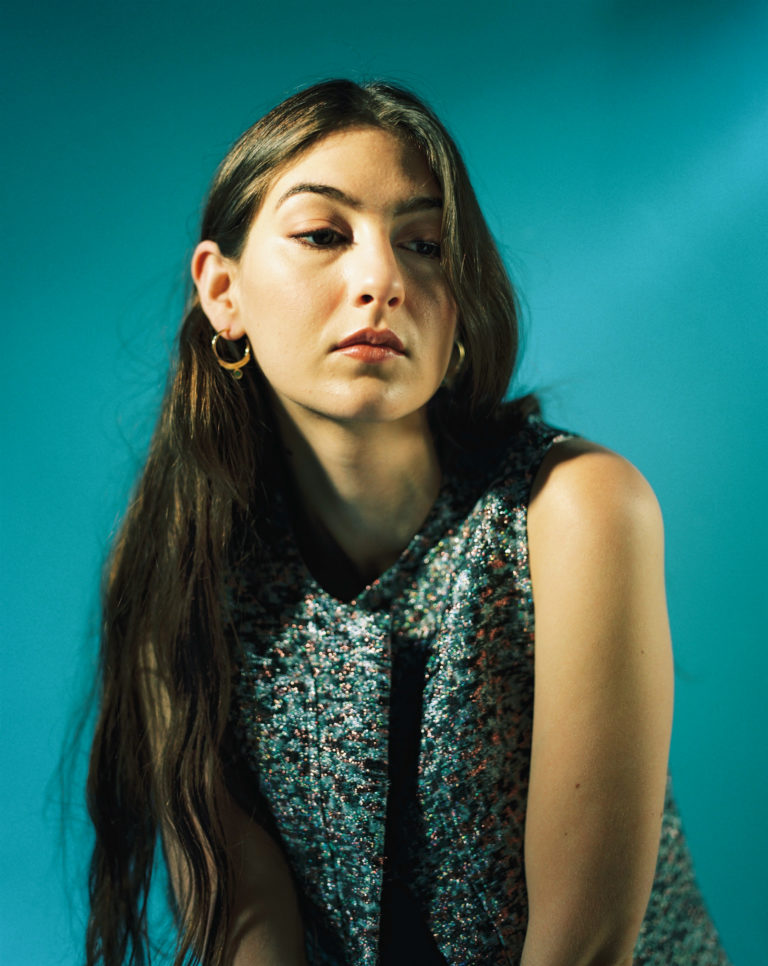
NAAR: So we are destroying the planet on a global scale, like there’s a movement that is going to be hard to stop.
WB: Yeah, well, the planet will stay, we’re just destroying ourselves, and the other living mammals and creatures.
NAAR: It’s something I’m very sensitive to, because we always say that we need to save the earth but actually the earth doesn’t really need the human beings but we need the earth.
WB: Yeah, yeah, we should be trying to save the ecosystems that cater to us existing.
NAAR: The location where you shot your album cover is this over-salinated man-made lake…
WB: It’s the Salton Sea and it was an old resort town where they channeled a bunch of water from the Colorado river to try to make a huge resort town. All the water evaporated and they realized that underneath there was a natural, like, salt flat. So the water became over-salinated and killed all the fish and things that were living in it. And then everybody abandoned the town, the whole place smells crazy and there’s all this abandoned trash and no animals can live inside the lake. It’s really putrid. It’s kind of a little glimpse into the future.
NAAR: That’s what I wanted to say, it’s a pretty good, yet dark and sad, illustration of what the earth can become.
WB: Yeah, it already exists. The worst of our fears already exists.
NAAR: So all the fish and the birds were introduced by men?
WB: I think that the birds were there. It’s more some of the fish. The salt was kind of hiding under the lake and we disturbed it. We kind of, you know, brought on the process of the over-salination.
NAAR: There a lot of slow motion in the music videos on this album, is there a specific reason?
WB: I think music puts life into slow motion in some ways so it makes sense that videos for music be in slow motion, because it’s kind of slowing down feelings and making them more timeless.
NAAR: You’ve been Weyes Blood since you were 15, you’re now 28. Why do you think your artist name stuck with you all these years?
WB: I think at a certain point I just felt uncomfortable changing it ‘cause it was all sort of part of the same direction. I didn’t wanna lose any momentum ‘cause I had been working on it for so long. And I haven’t put out that many records, so… If I had put out like 6 albums in my early 20s maybe I’d be a different name.
NAAR: I believe it comes from a novel, Wise Blood by Flannery O’Connor. Don’t you think the novels we read, music we listen to or films we watch when we’re teenagers have a stronger impact on our personalities than they do later in our lives?
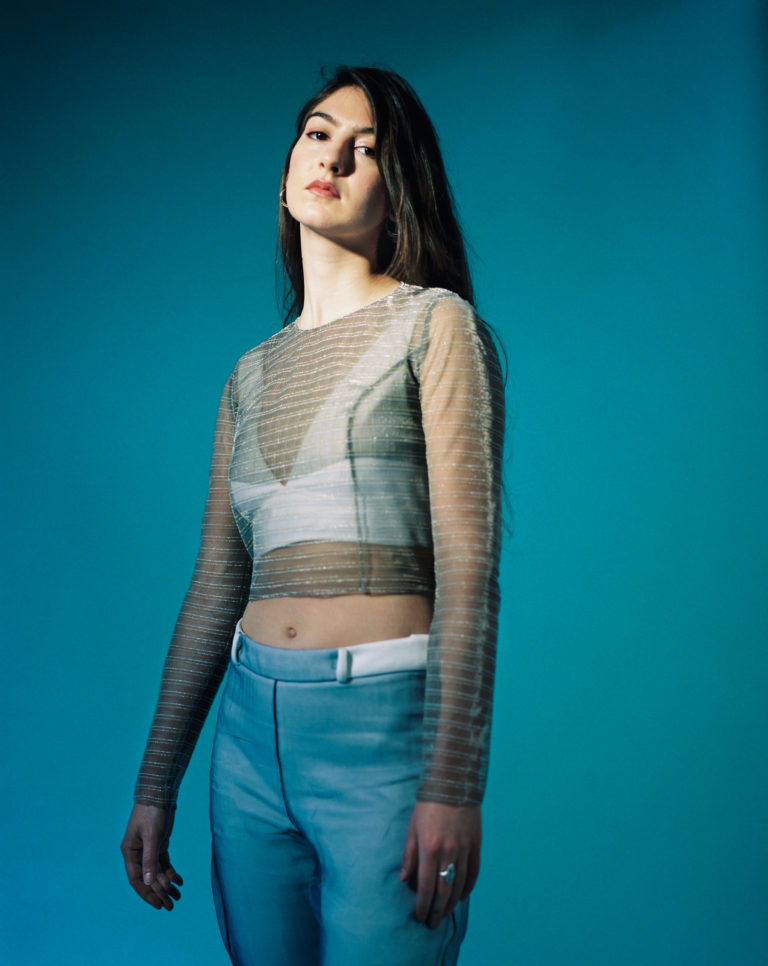
WB: Yeah! I definitely think so. Those were really formative years and all the books that I read at those times seemed to have a really big emotional impact on me. I haven’t actually re-read Wise Blood since that time. I kind of kept it encapsulated in what I felt at that moment. I’m kind of scared that if I were to read it now it wouldn’t feel as meaningful. But yeah I think that you’re more impressionable at that age because you haven’t been… you’re still kind of living in a world with limitless possibilities. You still believe that anything could happen. I think, as you get older, that becomes a harder belief to have, you feel more limited by your experience.
[In your teenage years] you’re still kind of living in a world with limitless possibilities [...] as you get older, you feel more limited by your experience.
NAAR: You wanted to become an actress when you were little right?
WB: Yes.
NAAR: Did you feel at some point that you were limited in your choices?
WB: I think I didn’t really like the culture surrounding acting. It was around high school that I realized all the theater kids were kinda lame and obsessed with how they looked, and just really boring. So I felt limited by that. But I like the idea of acting.
NAAR: Reacting to one of your tweets, you said in an interview that you’re a clown as a performer, you put on your mask and do your thing and get into character. What are the main personality traits of your clown?
WB: Haaa! Um… a sad, vulnerable clown… who just says it like it is… and who’s constantly misunderstood by the rest of the world.
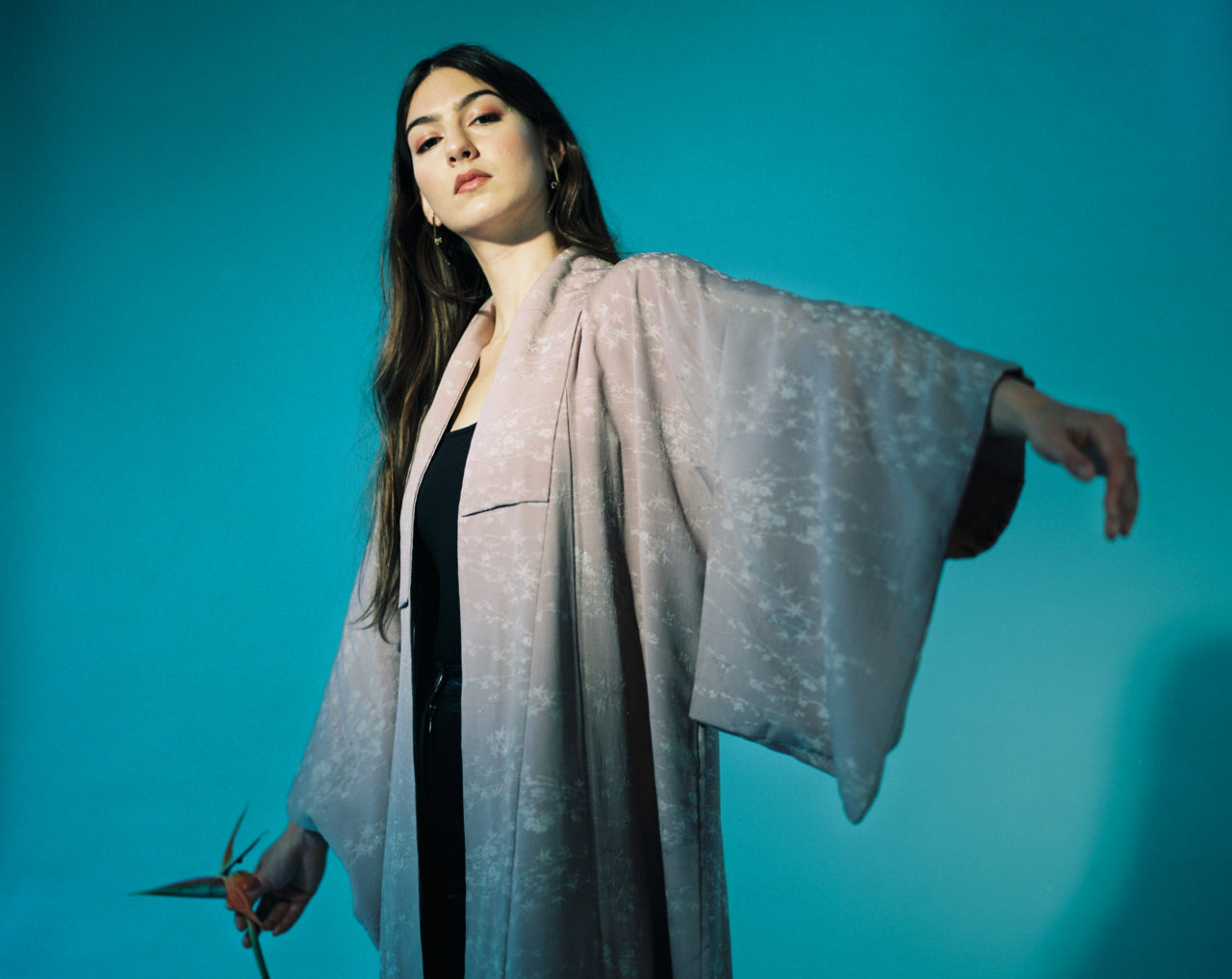
NAAR: Because people think your music is sad, period, and don’t see the complexity behind it?
WB: Yeah! Or just that I kind of occupy a different plan of existence, that doesn’t involve that many other people. So I don’t have the kind of camaraderie that some artists have. I think most artists are isolated in that way, in where they kinda function on a different plan.
NAAR: I had another question actually, about the novel Wise Blood. I believe you come from a very Christian family. The main character in Wise Blood questions religious beliefs but he’s also meant as a caricature of Evangelists that move away from Christian orthodoxy. Can we look for a message on your personality or your experience in this book?
WB: No, I wouldn’t say that my experience with Christianity is as intense as in that book. That book is more about punishment. There was a little bit of guilt and punishment in the Christianity I was raised in but it was actually more… um… what’s the word for it… it’ s that kind of bountiful… what is the word for it… there is actually a terminology for it. I guess charismatic Christian is the closest thing, or Pentecostal. It‘s kind of just praying and channeling spirits and things that heal people and change lives. So it’s kind of not as much about rules and laws and punishment. So I can’t really relate to that character in the book as much, I think he’s stuck in the law.
NAAR: What impact did this book have on you when you read it as a teenager?
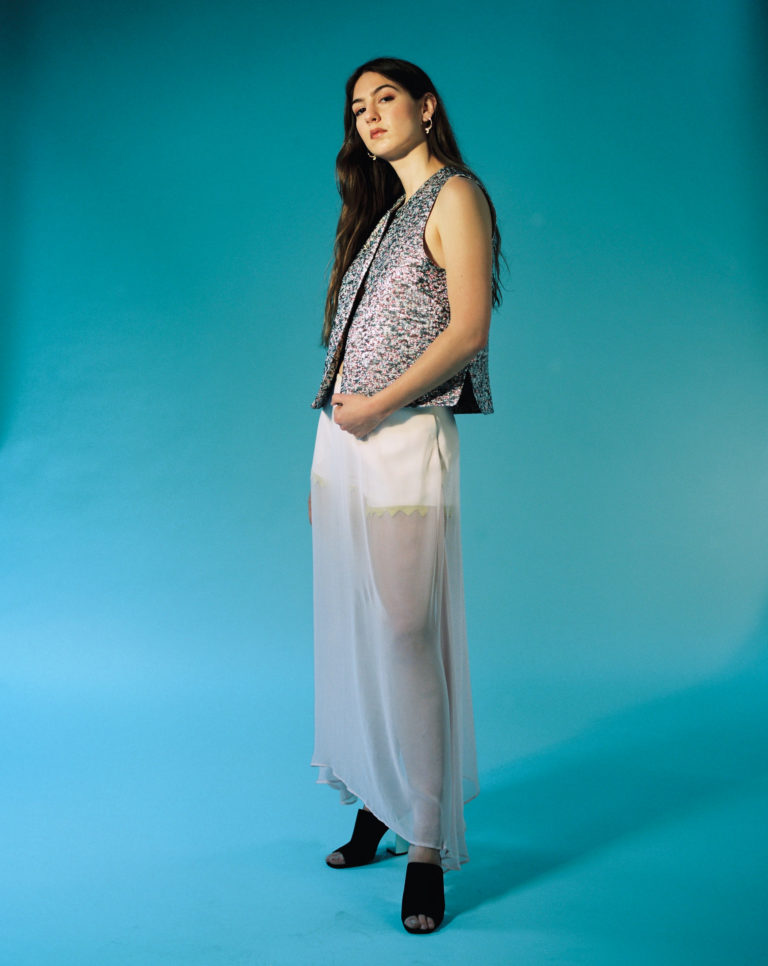
WB: The impact that it had on me is I took its title to become my band name. But it wasn’t actually… Philosophically I thought it was a really great book and it read well but more than anything I just loved the language that was used and the way she phrased things, and the term “wise blood”. So it wasn’t that the book itself or the content, you know, changed my life. It was more just the language. That’s why I haven’t re-read it.
NAAR: It was more the occasion for a good play on words?
WB: Yeah. What I liked about it, I liked the idea that blood is passed on from person to person, the blood inside you is never dead, you know. It was passed on to you from your mother. So in some ways we share the same blood as our ancestors. I just thought this concept was really beautiful. In a physical sense, not just in a metaphorical sense.
NAAR: During a residency in Baltimore you were a psychonarc research subject, for psychological healing purposes. What did you experience during your sessions? How did you feel?
WB: I’ll just talk about one session that was particularly cool. I was on the roof and I did salvia divinorum. There was a fan on the roof next to me that was making a big whirling sound. In my trip, I kinda closed my eyes and I was transported into this weird black and white and red circus full of clowns who were swinging me around on a trapeze. I think it was literally just the sound of the fan on the building next door. When I woke up, the fan had stopped, and on the next day somebody was on the roof repairing the fan. It had broken after my trip, and I thought it was very symbolic and strange because I had literally spiritually climbed onto it and was swinging around onto it. That’s what my trip was kind of composed of. Also just the world of the clowns and the circus is very much a running theme with DMT drugs. So finding the archetypes in that, in our consciousness, is pretty surprising. It’s a lot like an Alex Grey painting, which is kind of a disappointment in some ways.
NAAR: You also experienced sensory deprivation tanks?
WB: Sensory deprivation tanks are OK. I can’t do them for very long because I have too much sensory build up. When I get into one, if I stay in for too long, I’ll overheat or I’ll have some kind of weird phantom person in there with me. It gets really intense for me.
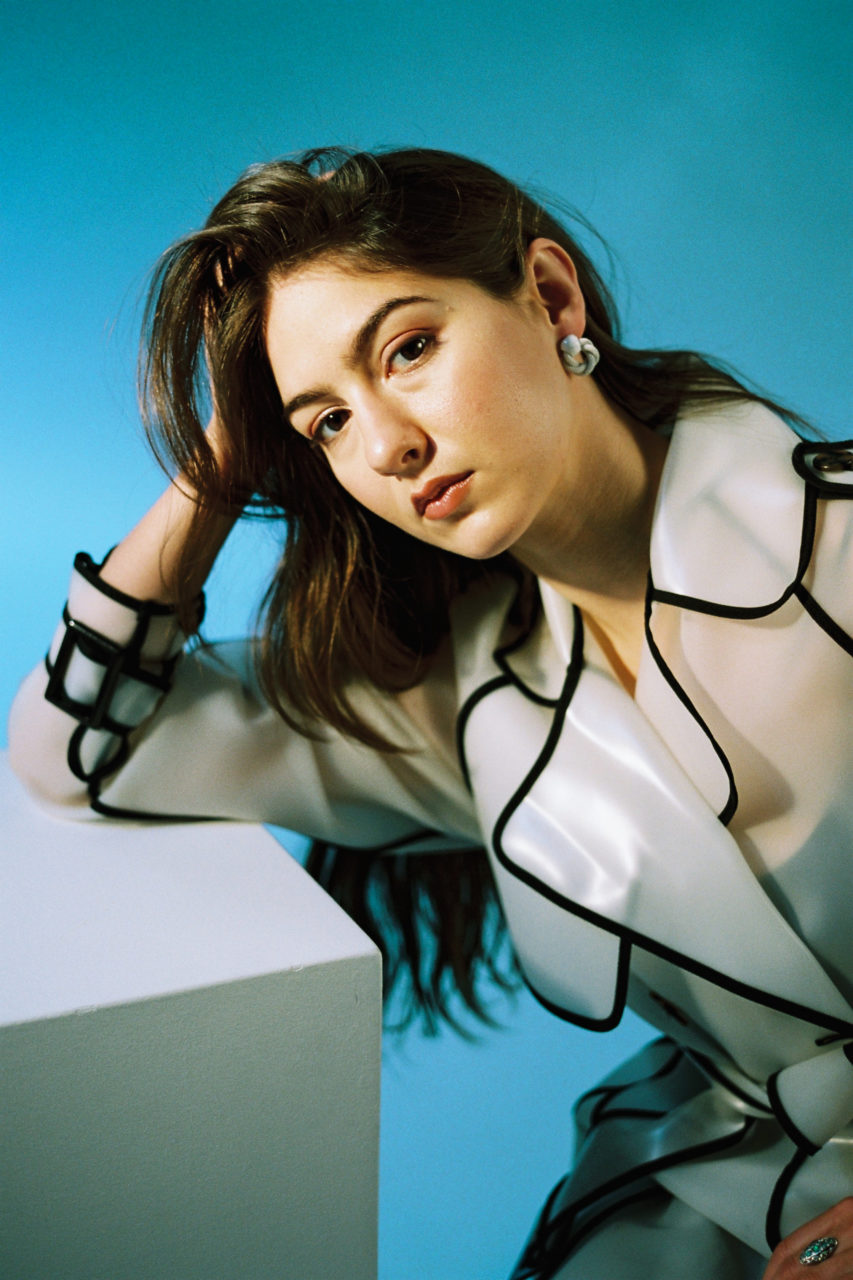
NAAR: Salvia is not any type of psychotropic, I think it’s basically used for healing or divinatory rituals. It’s funny that you would have an experiment with this kind of substance among any other substance, since you seem to have a very developed spiritual life.
WB: Yeah, definitely, it’s special. Most people really hate it because they do it in the context of a party, they do it in the wrong situation. It’s like a rocket, you have to kind of just sit in a chair and close your eyes and see where it takes you. You can’t get up and walk and look in the mirror, do anything like that. So it’s kind of for travelling.
NAAR: To finish, can you tell me a bit about your relationship to Ariel Pink. You released an EP together lately, you also made backing vocals on the album Mature Themes in 2012 and toured with him. How long have you two known each other? How did you meet?
WB: We met in 2010, we were both planning a show in Leipzig in different venues. I went to his show and I started speaking fake German at him. We both thought it was really funny. But we had a lot of mutual friends, he knew my brother for example, so it was kind of inevitable that we would eventually meet. I sang on Mature Themes and then it took a long time of just kinda being in the same world before we made that EP. We made it through the Marfa Myths festival of Mexican Summer. It is a yearly festival in Texas, that’s where we recorded it. I think we always wanted to work together and the opportunity arose for us to have studio time.
